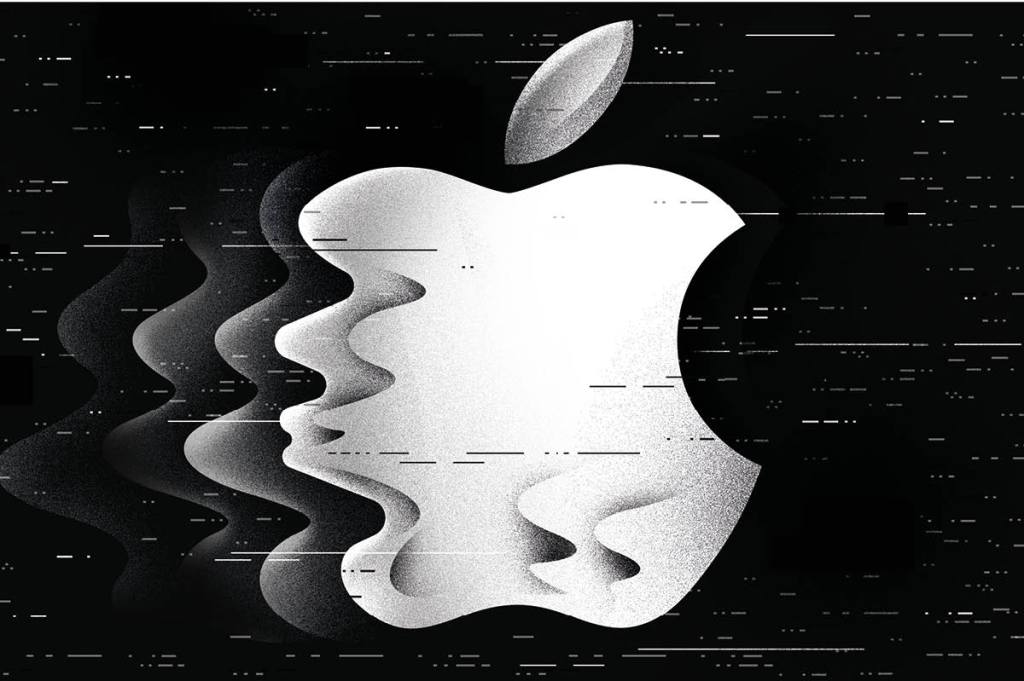On September 9, 2014, Apple users found an unrequested gift in their iTunes: a new U2 album. Songs of Innocence was supposed to jump-start a new wave of engagement with Apple’s music products, introducing their enormous user network to it for free. And it worked: Apple announced that it was “the largest album release ever.” But just because something’s free doesn’t mean people will use it. The following Monday, Apple released instructions for how to remove the album. Bono has subsequently, and repeatedly, apologized.
Five years later, in March 2019, Apple announced its entrance to the streaming game: Apple TV+. It would have big stars and directors — Jennifer Aniston, Steven Spielberg and Oprah Winfrey appeared onstage at the kickoff event — and it launched with the hit dramedy The Morning Show, followed the next year with Ted Lasso, now “the most Emmy-nominated comedy for the third consecutive year.” And Apple users would get a year of this service for free, with any new device.
But, once the time ran out, would anyone still watch it? And, given that Apple sells the iPhone — the most successful product of all time — why enter the streaming game? What was the point?
Four years on, the answer is complex. On one hand, Ted Lasso, Severance, The Morning Show, and Apple’s documentaries and original films continue to garner awards — their programming received fifty-four nominations for this year’s Emmys. From an uncertain start, they have created a strong library of programming, making a particular mark with auteur-directed films. At the 2022 Academy Awards, their family drama Coda became the first film from a streaming service to win Best Picture, and Martin Scorsese’s Killers of the Flower Moon and Ridley Scott’s Napoleon are among the most anticipated releases of 2023. They’ve partnered with Skydance Animation, working with Oscar-winning (if semi-disgraced) producer John Lasseter to develop animated films and shows. You may not have heard of it, but Apple’s trailer for last year’s Luck has more than 16 million views on YouTube. Plus they have a user interface that doesn’t make you want to shoot yourself, a welcome novelty among streaming services.
;768:[300×250,336×280,320×100];0:[300×250,320×100,320×50]”]Apple might not have HBO’s decades of experience, but it’s the richest company on earth, so can hurl endless heaps of cash at projects. Its initial annual budget of roughly $2 billion has long since tripled, and several producers told me that, even if Apple doesn’t take their project, just the chance raises their asking price with other networks.
Though Apple TV+ doesn’t have an enormous library, Matthew Ball (author of The Streaming Book) tells me that their use of a weekly release schedule for quality programming means they don’t need to. When you finish watching Ted Lasso, Silo will have started, and when that’s done, Hijack is waiting. So long as each successive program is well made, viewers will keep paying. Apple also — crucially — has live sports, through the inclusion of Major League Baseball and Major League Soccer. As Ball tells me:
Sports rights tend to be really effective in building these new video platforms, because they have three rarer attributes which are collectively unique: first, they produce a high volume of programming — Game of Thrones is eight episodes every year and a half, but MLS is dozens of games per year, Major League Baseball is thousands of games. The second attribute is their audiences tend to be highly passionate. There are lots of times where we say “well, if I subscribe to service A, I might watch that show”; but if you love baseball, or you love soccer, you have to sign up for Apple TV+ and its MLB Pass. And then the third is that in a famously fickle category of content sports rights are predictable.
But, if you aren’t a fan of soccer or baseball, why would you choose to subscribe to Apple TV+ over another service? It’s not a curated selection like Mubi or The Criterion Collection; it can’t compete with HBO’s catalog of quality narrative TV, Netflix’s range, or Disney’s animated films. If you want left-leaning snarky political punditry, you’ll watch Last Week Tonight with John Oliver, not the more expensive, less popular The Problem with Jon Stewart. Apple TV+ (unsurprisingly perhaps) doesn’t even have an Android app, excluding over 70 percent of the world’s smartphones, and almost all its content is in English.
Apple had originally intended just to release original programming, but in early 2020, changed strategies to attract viewers. The year-long free trial, intended to end in November 2020 was extended through February 2021; then a further five months, until July 31. That was the middle of the Covid streaming boom and yet, when that free trial ended, Apple TV+ reportedly had fewer than 20 million subscribers. Two years later, it remains one of the smallest services, behind Netflix, Prime Video, HBO’s Max, Disney+, Paramount+ and Hulu.
;768:[300×250,336×280,320×100];0:[300×250,320×100,320×50]”]But Apple isn’t necessarily doing a bad job here. Streaming services are just a terrible business. During the Nineties tech boom, television producers were convinced that the nascent internet was going to revolutionize television. Investors saw that in YouTube, when Google (in 2007) started sharing ad revenue with creators, but it was Netflix’s introduction of an online streaming option, that same year, which was actually the future. The internet wouldn’t change what programs would be produced — gimmicky connected websites have long since gone away, and most of the first major YouTubers are irrelevant or imprisoned. Instead, the internet would change how television is consumed and distributed, making it more convenient for users and expensive for its producers.
Netflix’s original model — subscribe to our service to get access to an enormous library, with everything you want— only works if you are the biggest (or only) player in town. As soon as there’s significant competition, the library gets chopped up and more expensive to license, and each company has to spend billions on a firehose of original content. At the same time, your potential customers have not become richer. Instead, with their interests spread across several streaming services, they have less money to spend with you. This was tolerable in the growth-focused zero-interest rate environment of Covid — when many investors delusionally thought cinema was dead — but the math doesn’t lie.
As Lucas Shaw reported in Bloomberg this summer, though content-spending by the four biggest entertainment companies (Netflix, Paramount, Disney/Fox and Warner Bros. Discovery) has dramatically risen over the past ten years, profits have evaporated. In 2013, these companies had combined profits of $23.4 billion. Today, it’s $2.6 billion; and most of that is Netflix, who wasn’t part of that 2013 figure.
Even without writers’ strikes and frustrated actors, this whole industry seems bound to contract sharply. The Netflix model doesn’t work — even for Netflix, which has raised prices, added games and is beginning to introduce ads.
Some think Apple TV+ will be fine because Apple could lose billions on it and wouldn’t care. But that’s wrong. Apple is the most valuable company on earth precisely because it does care — it wants to turn a profit on everything it sells. And not all streaming services need to be directly profitable.
For example, Amazon’s Prime Video was never intended to earn its money back directly. It was just a tool to make it difficult to cancel your Prime subscription, which is where Amazon earns its real money. By comparison, Apple’s TV offerings are a more sophisticated business. Put simply, they win whether you choose their streaming service or not.
;768:[300×250,336×280,320×100];0:[300×250,320×100,320×50]”]Most Americans own an iPhone, and once you have one Apple device, it’s hard not to choose another. AirPods have more features with iPhones than other Bluetooth earbuds; a MacBook Air will sync fully with that iPhone, unlike any Windows laptop, and you couldn’t consider another smart watch than the Apple Watch. All of them work with an Apple TV+ box.
When you turn on that Apple TV, bright icons from new TV+ programs float up appealingly alongside classics from HBO and maybe a new Disney film. Maybe you’ll want to watch Ted Lasso and subscribe to Apple TV+, but if you go for The Sopranos instead, and subscribe to Max, you’ll be buying it through Apple’s store, so they’ll take a cut.
Similarly, you may use Spotify instead of Apple Music; but Apple One includes iCloud+, Apple Music, Apple TV+ and Arcade for a reasonable fee, so why not swap? Though Mac and iPad sales declined in the first quarter of 2023, Apple’s services revenue grew by 5.5 percent, generating almost 20 percent of revenue: nearly $21 billion.
This lower dependency on the streaming model also means they can earn money from their productions through other avenues. Killers of the Flower Moon and Napoleon are expensive films — with estimated budgets of close to $200 million each — but Apple can afford them, as they will have a long cinema release, perhaps turning a profit there, and then will be available to stream exclusively from Apple TV+. By contrast, the only way Netflix earns money on their big films if you become a new subscriber.
Apple TV+ will not be the next Netflix, and that is the whole point. Streaming is a terrible business, and $3 trillion companies don’t enter bad businesses. Apple doesn’t particularly want you to buy TV+. They just want you to buy something, and then, hopefully, everything. Apple TV+ is just a big advertisement to get you there. If that gets us a new Scorsese epic, consider me sold.
This article was originally published in The Spectator’s September 2023 World edition.
;768:[300×250,336×280,320×100];0:[300×250,320×100,320×50]”]
























